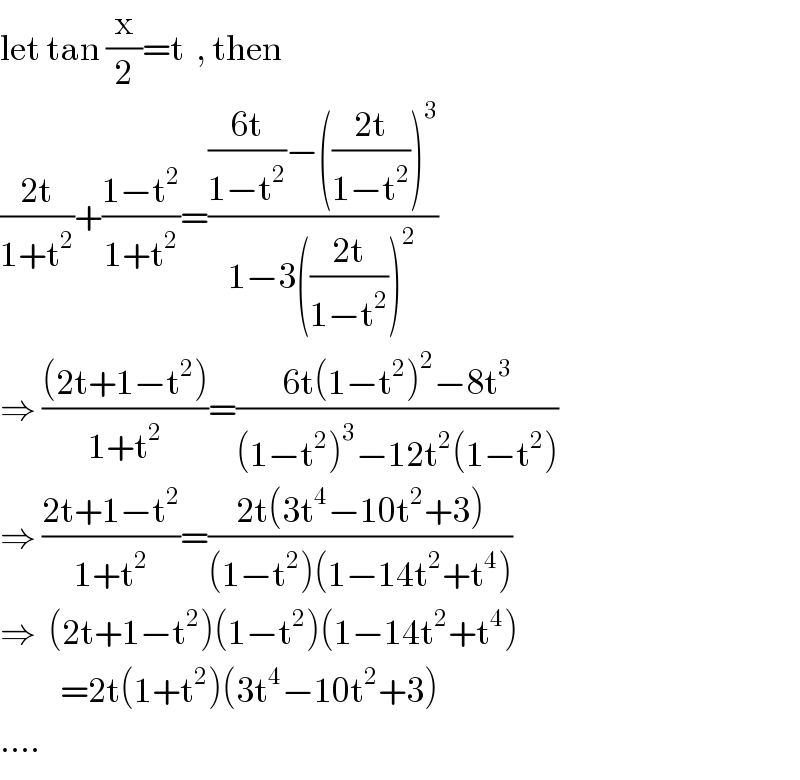Question Number 60587 by behi83417@gmail.com last updated on 22/May/19
![x∈[0,(π/2)] sinx+cosx=tg3x](https://www.tinkutara.com/question/Q60587.png)
Commented by MJS last updated on 22/May/19

Answered by ajfour last updated on 22/May/19

Answered by tanmay last updated on 22/May/19
![trying... when x∈[0,(π/2)] sinx∈[0,1] when x∈[0,(π/2)] cosx ∈[0,1] sinx+cosx (√2)((1/( (√2)))sinx+(1/( (√2)))cosx) =(√2) sin((π/4)+x) so when x∈[0,(π/2)] (sinx+cosx)∈[1,1.41] (x/(3x)) ((10^o )/(30^o )) ((20^o )/(60^o )) ((30^o )/(90^o )) ((40^o )/(120^o )) ((50^o )/(150^0 )) ((60^o )/(180^o )) ((70^o )/(210^o )) ((80^o )/( 240^o )) ((90^l )/(270^o )) when x=10^o tan3x≈0.58 when x=20^o tan3x≈1.73 so when x∈[10^o ,20^o ] tan3x=(sinx+cosx) (1)so one root lie when x ∈[(π/(18)),((2π)/(18))] when 60^o ≥x>30^o 180^o ≥3x>90^o value of tan3x (−ve) since angle lie in second quadrant. but (sinx+cosx)∈[1,1.41] (2)so no root lie when x∈[((3π)/(18)),((6π)/(18))] x=70^o tan3x≈0.58 x=80^o tan3x≈1.73 so one root lie when x∈[((7π)/(18)),((8π)/(18))] so given equation has two root in x∈[0,(π/2)] pls check...](https://www.tinkutara.com/question/Q60614.png)
Commented by tanmay last updated on 22/May/19

Commented by behi83417@gmail.com last updated on 22/May/19

